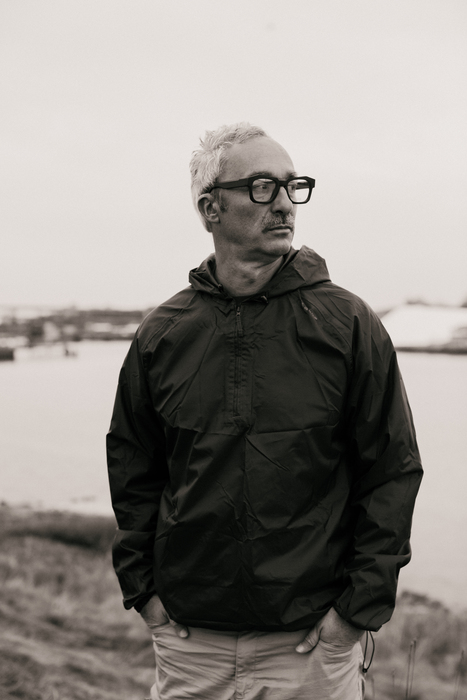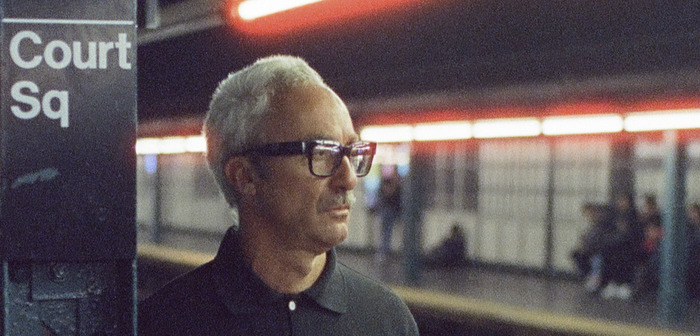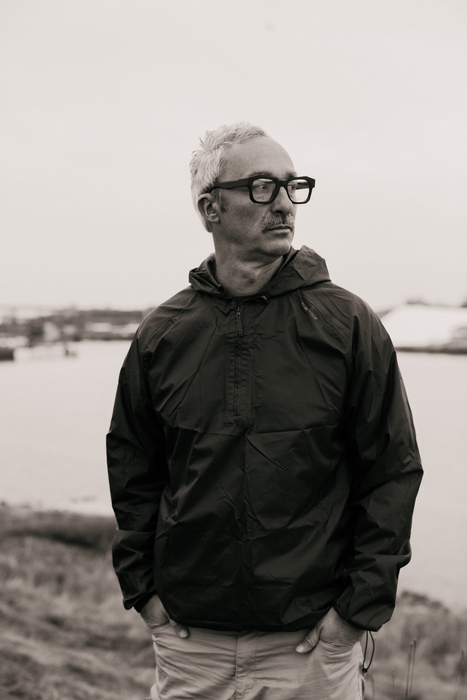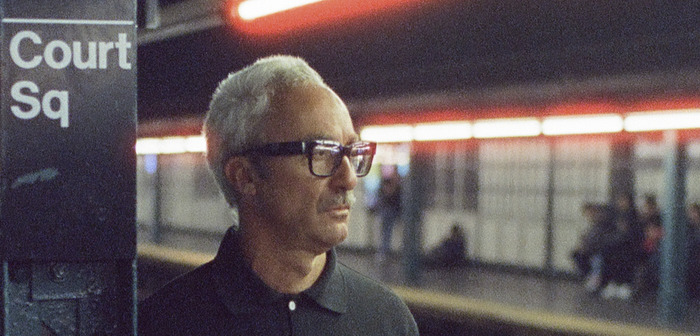Eduardo De La Calle è un produttore e dj spagnolo con una carriera di più di 25 anni alle spalle caratterizzata da una vastissima produzione musicale.
Eduardo De La Calle non è certo un nome nuovo nel panorama musicale elettronico tanto del passato quanto del presente. Nel corso della sua carriera come produttore che dura da più di 25 anni, De La Calle si è esibito in più di 60 Paesi, ha lavorato con alcune delle più prestigiose etichette come Planet E Communications di Carl Craig e ha prodotto una quantità vastissima di musica, varcando e sperimentando gli stili più diversi.
De La Calle è capace di creare opere che abbracciano diversi stili della musica elettronica, passando dal techno più sistematico alla complessità dell’IDM, alla sperimentazione dell’electronic jazz e a molto altro.

Ciao Eduardo e benvenuto su Parkett. La tua carriera professionale è estremamente lunga e prolifica, con numerosi album e produzioni musicali di diversi stili. Cos’è che in tutti questi anni non ti ha mai fatto stancare della musica, del produrla, di viaggiare per lei e di dedicarle praticamente tutta la tua vita?
Ciao Parket, grazie per avermi dato l’opportunità di condividere questo piccolo momento. Beh, direi che la musica, come ogni altra disciplina artistica, ha una caratteristica molto particolare, la diversità. All’interno di questa diversità, si trovano infiniti risultati, o diciamo modi, o possibilità di creare. Capisco che durante il processo di creazione, l’essere umano trovi momenti di pace, soddisfazione o una connessione diretta e profonda con il proprio subconscio. Senza dubbio il processo creativo ha aspetti meditativi, psichici e spirituali, per cui tutto questo compendio di cose è ciò che a parer mio mi mantiene fedele alla disciplina per anni.
Sappiamo che nel corso della tua vita hai vissuto molti cambiamenti. Uno dei più uno dei più significativi, ad esempio, è stato un ritiro spirituale di 6 anni. Durante questo periodo di tempo, la tua produzione musicale è stata davvero ampia, parliamo di circa 150 uscite in meno di 10 anni. C’è stato o c’è un particolare messaggio o filosofia di vita che hai voluto tradurre in musica e forza creativa, tanto all’epoca quanto nel presente?
Io direi che non esattamente. Piuttosto direi che una persona plasma la propria vita, sentimenti ed emozioni attraverso l’arte, in questo caso la musica. A volte gli esseri umani creano arte semplicemente per impulso, perché stanno cercando qualcosa, come ad esempio fama, denaro o riconoscimento. Ma altre volte creiamo per necessità, per vocazione o per cercare di sfuggire a un contesto sociale in cui semplicemente non ci troviamo bene, condannandoci a un ostracismo volontario. In quel caso, creiamo in solitudine, dal profondo, con una coscienza e un’intenzione precise. È così che trascendiamo le mode e creiamo avanguardie. Quindi, più che tradurre una filosofia di vita attraverso la mia musica, quello che faccio è vivere quotidianamente insieme al processo creativo e perfezionarlo, in modo da dare alla mia vita un po’ più di significato. Non si tratta tanto di esprimere una particolare filosofia di vita attraverso l’arte e il suono, quanto di fare del suono e dell’arte la mia filosofia di vita.
Quanto influisce sulla tua creazione il fatto di avere delle scadenze o dei termini da rispettare? Pensi di avere una libertà totale in questo o credi che ci siano elementi esterni, anche di altro genere, che inevitabilmente influenzino ciò che un artista crea?
Di solito le etichette discografiche ti danno totale libertà in termini di scadenze e non ci sono pressioni di alcun tipo. D’altra parte, qualsiasi evento inaspettato può produrre uno stato di apatia, di tristezza o di blocco. Quindi in relazione alla tua domanda ammetto che sì, tutto ha un’influenza.
E la situazione del mercato attuale, come condiziona la tua arte e la tua persona in questo momento della tua vita?
La situazione attuale degli artisti e dell’arte in generale rispetto ai social network è un’opportunità mai avuta prima. Questo ci permette di accedere a un mercato globale e comunitario ed è senza dubbio una grande occasione. D’altra parte, l’artista oggi deve essere sempre in forma per mostrarsi al mondo in modo ideale. L’arte oggi si mescola molto con i social network e l’artista deve essere concentrato affinché questo non lo influenzi a livello artistico e creativo. Nel momento in cui si prova frustrazione o disagio a causa di situazioni esogene, tutto questo influisce e può essere difficile mostrarsi sempre al 100% ed essere costantemente all’altezza della situazione.
Riguardo all’industria musicale contemporanea, ci sono cambiamenti, sia positivi che negativi, che hai notato personalmente?
Beh, io appartengo a una generazione che comprava i dischi nei negozi, i clienti erano disc jockey o aspiranti tali o addirittura, come nel mio caso, disc jockey + dipendente del negozio di dischi. Quindi la musica veniva venduta nei negozi a clienti specifici (DJs). Oggi la musica si vende su internet e il cliente non è una persona specifica, ma un individuo che spesso paga e utilizza l’articolo dal proprio telefono. Le cose sono cambiate molto, il mercato è cambiato, il formato è cambiato e sia a livello generazionale che tecnologico tutto è in continua evoluzione. Questi cambiamenti hanno influenzato il modo in cui interagiamo con l’industria, ma la proposta, almeno la mia, non è cambiata. Si adatta senza farsi coinvolgere troppo dalle esigenze del settore, ma allo stesso tempo presta particolare attenzione al funzionamento di quest’ultimo. In fin dei conti industria e artista vanno di pari passo.
E il tuo modo di fare musica e di creare è cambiato nel corso degli anni? Puoi parlarci di questo cambiamento?
Nel mio studio continuo a cambiare diversi tipi di parti-sezioni o strumenti, il che mi permette di avere accesso a una tavolozza di suoni sempre fresca, ampia e vasta. La tecnologia influenza e dirige in un certo senso tutti noi che siamo in questo campo professionale, ma in relazione alla DAW o alla parte tecnica non faccio cambiamenti sostanziali. D’altra parte, è la mia mente che cambia nel tempo, il modo in cui concepisco la mia esistenza e il mio lavoro influisce di conseguenza in maniera diretta
sul mio modo di creare.
Tra i vari stili di musica elettronica che hai avuto modo di esplorare, contiamo anche le produzioni IDM. Raccontaci un po’ di più di questo stile e su come è stato per te sperimentarlo.
Sì, è stato davvero fondamentale. I miei lavori più recenti su Apnea Records (un album e un EP) sotto lo pseudonimo di Quantum Collapse e l’integrazione della programmazione numerica hanno cambiato il mio modo di intendere le mie composizioni. Senza dubbio quest’esperienza ha influito in modo molto positivo nell’affrontare nuovi lavori in studio in relazione ad altri stili. La musica IDM è indubbiamente una sfida per qualsiasi produttore a causa della sua complessità. Aver potuto esplorare quella direzione è stato e continua ad essere arricchente sotto molti aspetti.
Ultima domanda. Sappiamo che al momento stai lavorando a diverse produzioni. In particolare, sono in arrivo un progetto techno e uno jazz. Puoi dirci qualcosa di più al riguardo?
I lavori più jazz del Torus Trio usciranno in vinile a settembre ed è stato un vero piacere lavorare con grandi musicisti come Manuel Melero e Mike Jiang. Ho lavorato anche con Fabio Giachino e Dj Surgeles
nel progetto Quintetto Telemaco Xavier e al momento stiamo cercando di portare questa iniziativa sulla scena globale. Per quanto riguarda lo spettro techno, la collaborazione con Andres Fusaro sul nuovo progetto “Rapid-sequential-circular-assembly” è molto significativa e spero di avere presto più notizie sull’uscita di questi lavori.

ENGLISH VERSION
Eduardo De La Calle: a life for music
The Spanish producer and DJ has a career of more than 25 years behind him characterized by a vast musical production.
Eduardo De La Calle is certainly not a new name in the electronic music scene both past and present. Over the course of his career as a producer spanning more than 25 years, De La Calle has performed in more than 60 countries, worked with some of the most prestigious labels such as Carl Craig‘s Planet E Communications, and produced a vast amount of music, crossing over and experimenting with the most diverse styles.
De La Calle is capable of creating works that span different styles of electronic music, moving from the most systematic techno to the complexity of IDM, the experimentation of electronic jazz and much more.

Hello Eduardo and welcome to Parkett. Your professional career is extremely long and prolific, with numerous albums and musical productions of different styles. What is it in all these years that has never made you tired of music, of producing it, of traveling for it and devoting practically your whole life to it?
Hi Parket, thank you for the opportunity to share this little moment. Well, I would say that music, like any other artistic discipline, has a very special characteristic, diversity. Within this diversity, you find infinite results, or let’s say ways, to create. I understand that during the process of creation, human beings find moments of peace, satisfaction, or a direct and deep connection with their subconscious. Undoubtedly, the creative process has meditative, psychic and spiritual aspects, so this whole compendium of things is what in my opinion keeps me faithful to the discipline for years.
We know that throughout your life you have experienced many changes. One of the most one of the most significant, for example, was a 6-year spiritual retreat. During this period of time, your musical output has been really extensive, we are talking about about 150 releases in less than 10 years. Was there or is there a particular message or philosophy of life that you wanted to translate into music and creative force, both then and now?
I would say not exactly. Rather I would say that a person shapes his life, feelings and emotions through art, in this case music. Sometimes human beings create art simply out of impulse, because they are looking for something, such as fame, money or recognition. But other times we create out of necessity, out of vocation or to try to escape a social context in which we simply do not fit, condemning ourselves to voluntary ostracism. In that case, we create in solitude, from deep within, with a precise consciousness and intention. This is how we transcend fashions and create vanguards. So rather than translating a philosophy of life through my music, what I do is to live together with the creative process on a daily basis and refine it, so as to give my life a little more meaning. It is less about expressing a particular philosophy of life through art and sound and more about making sound and art my philosophy of life.
How much does having deadlines affect your creation? Do you think you have total freedom in that, or do you think there are external elements, even of other kinds, that inevitably influence what an artist creates?
Usually record labels give you total freedom in terms of deadlines and there are no pressures of any kind. On the other hand, any unexpected event can produce a state of apathy, sadness or blockage. So in relation to your question I admit that yes, everything has an influence.
And the current market situation, how does it affect your music and your person at this time in your life?
The current situation of artists and art in general with respect to social networks is an unprecedented opportunity. This gives us access to a global and community market and is undoubtedly a great opportunity. On the other hand, the artist today must always be in shape to show himself to the world in an ideal way. Art today mixes a lot with social networks, and the artist must be focused so that this does not affect him artistically and creatively. At the time when one is experiencing frustration or discomfort due to exogenous situations, it all affects and it can be difficult to always show up at 100%.
Regarding the contemporary music industry, are there changes, both positive and negative, that you have personally noticed?
Well, I belong to a generation that bought records in stores, the customers were disc jockeys or would-be disc jockeys or even, as in my case, disc jockeys + record store employees. So music was sold in stores to specific customers (DJs). Today music is sold on the Internet and the customer is not a specific person, but an individual who often pays for and uses the item from their phone. Things have changed a lot, the market has changed, the format has changed, and both generationally and technologically everything is constantly evolving. These changes have affected the way we interact with the industry, but the proposition, at least mine, has not changed. It adapts without getting too caught up in the needs of the industry, but at the same time pays special attention to how the industry works. At the end of the day, industry and artist go hand in hand.
And has your way of making music and creating changed over the years? Can you tell us about this change?
In my studio I keep changing different types of part-sections or instruments, which allows me to have access to a palette of sounds that is always fresh, broad and vast. Technology influences and directs in a way all of us who are in this professional field, but in relation to the DAW or the technical part, I don’t make substantial changes. On the other hand, it is my mind that changes over time, the way I conceive of my existence and my work consequently directly affects on the way I create.
Among the various styles of electronic music you’ve had a chance to explore IDM productions. Tell us a little bit more about this style and what it was like for you to experiment with it.
Yes, it has been fundamental. My most recent works on Apnea Records (an album and an EP) under the pseudonym Quantum Collapse and the integration of numerical programming have changed the way I understand my compositions. Undoubtedly, this experience has been a very positive influence in tackling new studio work in relation to other styles. IDM music is undoubtedly a challenge for any producer because of its complexity. To have been able to explore that direction has been and continues to be enriching in many ways.
Last question. We know that you are currently working on several productions. In particular, a techno project and a jazz project are on the way. Can you tell us more about that?
The more jazzy works of Torus Trio will be released on vinyl in September, and it has been a real pleasure to work with great musicians like Manuel Melero and Mike Jiang. I also worked with Fabio Giachino and DJ Surgeles in the Telemaco Xavier Quintet project, and we are currently trying to take this initiative to the global scene. Regarding the techno spectrum, the collaboration with Andrés Fusaro on the new project “Rapid-sequential-circular-assembly” is very significant and I hope to have more news about the release of these works soon.

